Featured
Collections
All Collections
All Content
This session will explore how leading organizations replace manual approval gates with automated guardrails, and how executives can measure success through outcomes such as speed, reliability, developer experience, and policy compliance.
LEARN MORE ABOUT HARNESS HERE:
Continuous Delivery: https://www.harness.io/products/continuous-delivery
Continuous Integration: https://www.harness.io/products/continuous-integration
Internal Developer Portal: https://www.harness.io/products/internal-developer-portal"
# Roundtable
Comment
Kiren Sekar (CPO @ Samsara) joins us to deconstruct the "Innovation Engine" behind Samsara, and how this system drives real-world impact and ROI across their products. We explore Samsara’s decade-long compound product strategy and the mechanics of accelerating feedback loops in an era where the primary bottlenecks shift from code generation to customer feedback and absorption of change. Kiren details how their data flywheel expands the aperture of what is possible to build and we dive into the system of customer-driven innovation: advisory boards, “spark sessions” to test hypotheses and gain unfiltered feedback. Plus we talk about the power of embedding engineers in frontline environments (from truckyards to construction sites) to cultivate “taste,” customer empathy and trigger non-linear ideas.
Founders often delay leadership coaching until a major crisis hits, leading to significant costs in productivity, team churn, and poor decisions. In this episode, James Birchler (Technical Advisor & Executive Leadership Coach) argues that early coaching is a game-changer for a startup's success. We explore the hidden costs of waiting and the benefits of intentionally installing leadership and communication systems before you scale. James shares specific self-awareness mechanisms, like advisory groups and feedback loops, to help founders design their day and create accountability. You'll also learn practical strategies like the "5-Minute Alignment Loop" for spotting communication breakdowns & for reinforcing clarity. Plus insights on how to "install your leadership OS" so it can scale with your company.
In our latest ELC episode, we are addressing some of the biggest challenges facing engineers today: identifying your scaling thesis, putting that thesis into practice, and addressing implementation challenges. Jaikumar Ganesh, Head of Engineering @ Anyscale, shares insights from his experience working at top tech companies like Android and Uber, and how to apply those lessons within your own orgs. We also cover strategies for identifying what to build, using data effectively when it comes to understanding AI agents, and keeping your intent (and customer success) top of mind. Additionally, Jaikumar discusses his experience as a GM and why all orgs should adopt cross-functional skillsets as part of their company culture.
# Roundtable
# AI Agents
# SaaS
# Engineering Leadership
1

Aneela Kaplan · Jan 28th, 2026
# Building Team Culture
# Business Goals
# Communication
# Collaboration
# Community
# Culture
# Decision Making
# Diversity & Inclusion
# Engineering Manager
# Flexible Organizations
# Growth
# High-Performance
# Influence
# Leadership
# Motivation
# Personal Growth
# Skills
Comment
How do you transform a collection of individual tools into a cohesive, AI-powered symphony? Vineeta Puranik (CPTO @ SmartBear) dissects the strategy behind evolving a product vision from point solutions to a unified multi-product ecosystem. We explore the critical architectural distinction between "AI bolt-on" and "AI native" strategies, frameworks for seamless M&A integration, and how to design for varying levels of customer AI readiness. Vineeta also discusses the shift to test “does it match intent”, using “jobs to be done” to drive solving entire workflows not just tool capabilities, and designing user experiences for both human personas and AI agents.
Tyson Singer (Head of Tech & Platforms @ Spotify) joins us to unpack how Spotify is transforming its product development lifecycle across creation, experimentation and maintenance to shift from "localized speed" to "systematic speed." We explore why the industry’s current obsession with the "Build It" phase of development is shortsighted, and how Spotify is aggressively deploying AI in the "Think It" (prototyping/strategy) and "Maintain It" (fleet management) phases. Tyson also details the internal tools driving this shift, including AiKA and Honk, and shares why the future of engineering relies on moving from I-shaped specialists to T-shaped generalists.
It started with a simple idea from James Tyack: “What if we hosted a hackathon at ELC Annual?” The result was a unique experiment where 14 senior engineering leaders stepped away from strategy to build and ship functioning apps in one weekend, unlocking new insights on AI-native workflows, "vibe coding," and the future of engineering. In this episode, we deconstruct the entire hackathon operational playbook, sharing lessons on everything from “best failure awards” and async collaboration structures to structuring ideation periods for maximum business alignment. Beyond the logistics, we explore how getting hands-on helped these leaders overcome imposter syndrome and why "rolling up your sleeves" is now a prerequisite for leading effective engineering teams. Plus, James shares how he plans to evolve the hackathon format at ELC and beyond. If you’ve been curious about leveraging hackathons to drive innovation, expose your team to new tools, or evolve how your org builds, this episode provides the blueprint for successful implementation.

